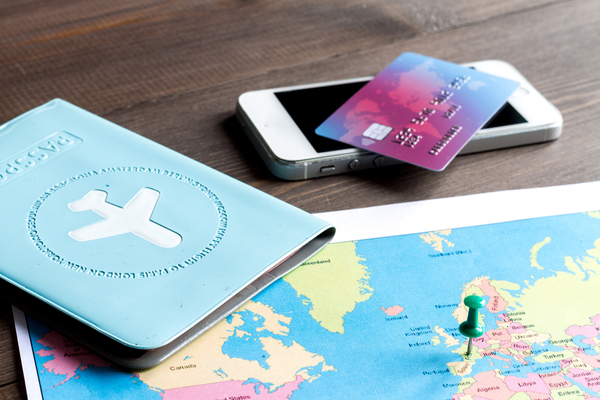With the reopening of borders and an increase in international travel, it is essential to have convenient access to your money whenever you travel internationally. Debit cards, credit cards, and specific prepaid travel cards are some alternatives found in the market today. Accessibility should be your first concern; nevertheless, you should also consider costs, currency rates, safety, and whether you can recuperate excess funds. So before you pack your bags for that long-awaited holiday or business trip, let’s look at how travel cards function and examine some of the most common options.

Debit cards
For a majority of customers, using a debit card is the preferred method of payment. Besides credit cards, Visa and MasterCard debit cards are often accepted in well-known tourist destinations. However, despite the convenience of using a debit card to access money overseas, hefty fees and uncompetitive exchange rates may make this technique more expensive than other options. For instance, the four leading Australian banks charge roughly $5 for every ATM withdrawal plus 3% for currency conversion on ATM operations. But note that some banks don’t charge a fee for international transactions.
Credit Cards
There are times when using a credit card that is already connected to your transaction account is the best choice, such as when you have a brief trip planned. Hotel rooms or rental vehicles may be reserved using credit cards like Visa or MasterCard via a hold agreement. Overspending is always a concern when using credit cards; a card connected to an existing transaction account is also vulnerable to theft or loss. Credit cards, just like debit cards, often come with poor conversion rates and exorbitant fees when used outside of the country.
Pre-paid travel cards
Prepaid travel cards are versatile, inexpensive, and accessible for worldwide travel. A travel money card lets you load money before you depart, reducing your risk if it’s lost or stolen. These cards have known exchange rates and overseas fees, meaning you won’t be hit with a nasty surprise later on.
Because of the expenses associated with creating an account, adding funds, and making transactions, the offered exchange rates on travel cards can be quite average. Although Australian travel card holders can now reclaim funds on all expired travel cards, there have been concerns in the past with individuals attempting to retrieve unused funds. Many organisations provide travel cards, including banks, credit unions, Qantas, Australia Post, and several others.
If you have used any of these card options in the past on previous trips, don’t forget to check their expiry date prior to your departure so you don’t get caught out last minute!
You should always have a reliable travel card with you, no matter the destination. Pre-paid travel money cards are a safe and affordable alternative to debit and credit cards for short journeys or those with few ATM transactions. If you would like to discuss your present position or any of the ideas in this article in further detail, please contact one of our Financial Specialists on 03 9835 8200. Alternatively, you may fill out the form below, and we will contact you.
